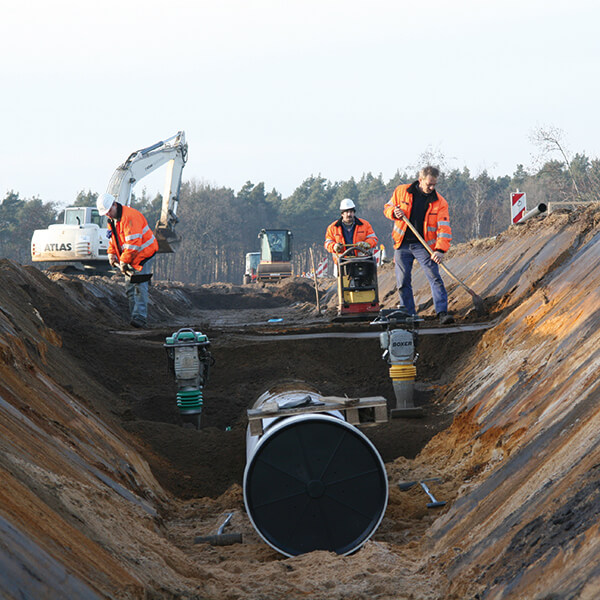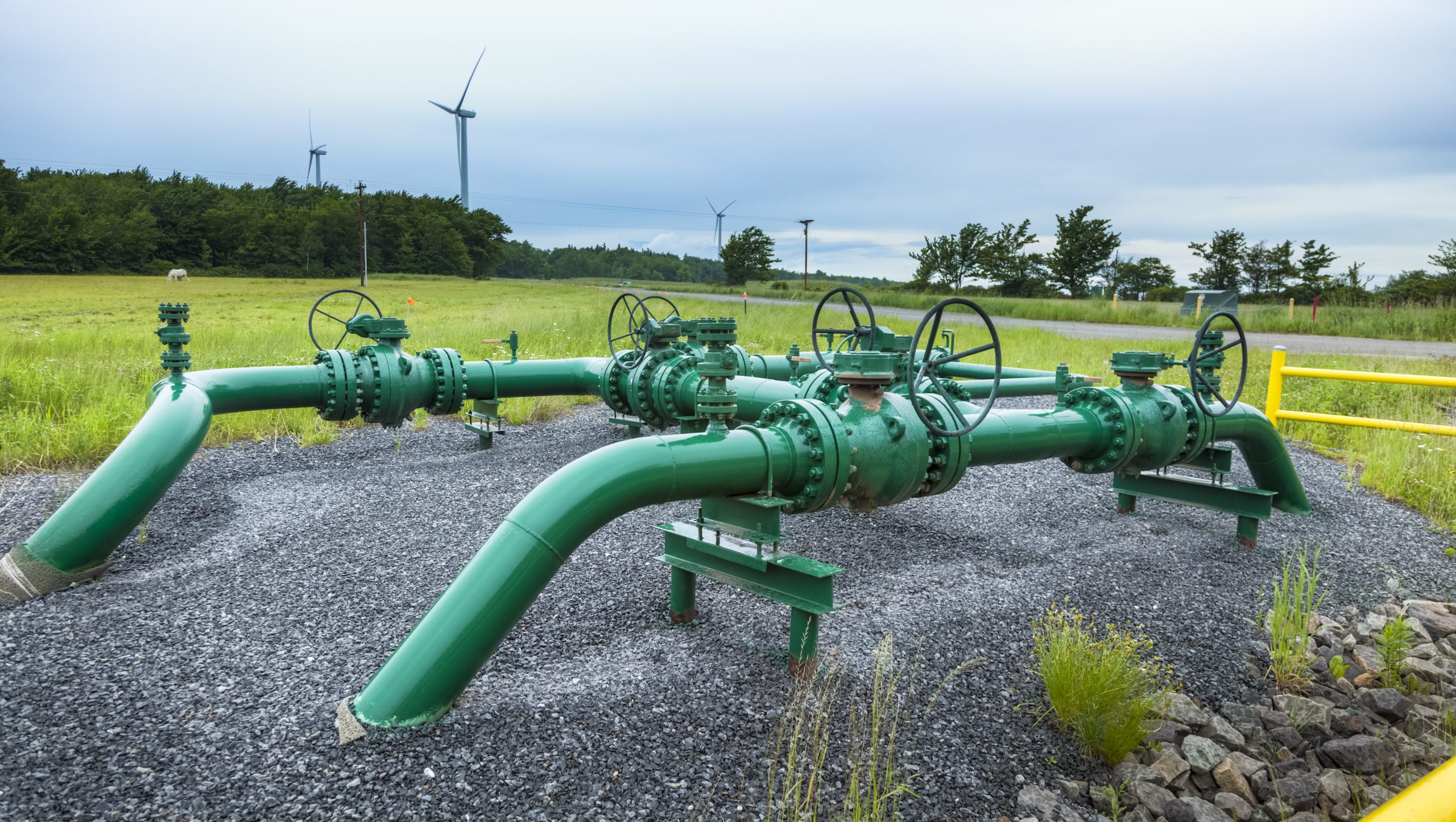How Pipeline Construction Services Ensure Safety and Regulatory Compliance
Wiki Article
The Vital Overview to Recognizing Pipeline Construction Providers and Their Relevance
Pipeline Construction solutions are basic to the transport of vital sources such as gas, oil, and water. These solutions entail meticulous preparation and implementation, adhering to rigid safety and environmental criteria. As the industry adapts to contemporary challenges, understanding its implications and parts comes to be increasingly vital. What variables add to the expanding value of these services in today's economic situation? The adhering to areas will check out these important elements.Introduction of Pipeline Construction Providers
Pipeline Construction services encompass a variety of tasks vital for the setup and maintenance of pipes made use of to transfer different compounds, including gas, oil, and water. These solutions are essential for guaranteeing the efficient and safe movement of resources from one place to one more. The process usually begins with thorough planning and design, which takes into consideration regulative needs, environmental factors to consider, and logistical challenges.Excavation and grading of the land are conducted to prepare the site for Pipeline installment once preparation is full. This is complied with by the actual laying of the pipelines, which includes welding or joining areas with each other to produce a continuous circulation course. After installation, rigorous screening is done to ensure integrity and safety. Upkeep services are also given to resolve any kind of problems that may occur gradually. On the whole, Pipeline Construction solutions play a crucial role in supporting facilities for energy and water distribution.
Key Components of Pipeline Construction
A successful Pipeline Construction job depends on numerous vital components that ensure the risk-free and effective installment of the Pipeline system. First, extensive website assessments are critical, as they identify the geographical and ecological variables that may impact Construction. Next, the choice of ideal products, such as pipes and installations, is essential for safeguarding durability and compatibility with the carried substances.Progressed Construction methods, consisting of trenchless modern technology and directional exploration, boost performance and minimize environmental impact. Effective job administration is an additional essential component, collaborating labor, tools, and timelines to meet job objectives.
Additionally, communication amongst stakeholders, including engineers, professionals, and regional authorities, assurances positioning on project specs and requirements. Finally, extensive high quality control actions throughout the Construction procedure make certain conformity with sector requirements and make the most of the Pipeline's operational life-span. Collectively, these components create the backbone of an effective Pipeline Construction job.
Safety Requirements and Laws in Pipeline Construction

Governing bodies, such as the Occupational Safety And Security and Wellness Management (OSHA) and the Pipeline and Hazardous Products Safety And Security Management (PHMSA), stated certain demands that govern Construction practices. These include methods for tools usage, employee training, and emergency reaction procedures. By executing these standards, Construction companies not only protect their staff members yet additionally safe public depend on. Eventually, rigorous safety actions add to the long-lasting success of Pipeline jobs, ensuring they meet both functional and ecological expectations.
Environmental Factors To Consider in Pipeline Projects

Environmental factors to consider are essential to the preparation and execution of Pipeline tasks. These projects have to examine possible influence on communities, water sources, and local wild animals. Conducting comprehensive ecological effect assessments (EIAs) is essential, permitting stakeholders to determine and minimize threats before Construction begins.
Safeguarding sensitive locations, such as wetlands and environments, usually requires applying particular layout features or alternate transmitting to minimize interruption. In addition, Pipeline drivers are tasked with establishing approaches for stopping spills and leakages, which can have disastrous results on the environment.
Interaction with neighborhood communities is necessary, as public concerns can lead to job adjustments that improve environmental management. Conformity with laws established by ecological firms guarantees that tasks meet sustainability requirements, cultivating an equilibrium between infrastructure needs and ecological conservation. Ultimately, attending to ecological considerations not only safeguards nature however additionally advertises community depend on and job feasibility.
The Function of Technology in Pipeline Construction
Technology plays a vital function in modern-day Pipeline click to investigate Construction, boosting performance and accuracy. Advanced surveying strategies permit accurate planning and implementation, lessening environmental influence and job delays. In addition, the integration of automation and robotics simplifies procedures, reducing labor prices and improving safety on Construction sites.Advanced Evaluating Techniques
Advanced surveying strategies play an essential role in the effective execution of Pipeline Construction tasks. These approaches take advantage of innovative innovation to assure exact mapping and evaluation of the surface where pipes will certainly be set up. Techniques such as Geographic Info Equipment (GIS), LiDAR (Light Detection and Ranging), and 3D modeling enable engineers to visualize and analyze the landscape, determining potential barriers and environmental issues. By utilizing these sophisticated devices, teams can improve precision ready and alignment, substantially decreasing the threat of errors during Construction. Furthermore, real-time data collection enables for prompt adjustments and educated decision-making throughout the job lifecycle. Ultimately, these evaluating advancements add to boosted performance, security, and sustainability in Pipeline Construction initiatives.Automation and Robotics

Economic Influence of Pipeline Framework
Pipeline facilities plays a crucial duty in forming local economic situations and assisting in profession. By supplying a trustworthy methods of moving oil, gas, and various other products, pipelines reduce transportation costs and boost supply chain efficiency. This infrastructure brings in financial investment, promotes task creation, and promotes economic development in surrounding areas.Moreover, the Construction and upkeep of pipelines contribute considerably to neighborhood economies, developing many job opportunity in various markets, from engineering to labor. The influx of work frequently results in enhanced costs in local companies, even more bolstering economic task.
In addition, pipes improve energy protection by guaranteeing a steady supply of resources, which is crucial for commercial procedures and household demands. As areas become interconnected with Pipeline networks, they access to broader markets, boosting competition and economic resilience. The economic impact of Pipeline infrastructure is multifaceted, influencing both instant local economic climates and more comprehensive local growth.
Future Fads in Pipeline Construction Providers
The future of Pipeline Construction services is developing in feedback to technological improvements, governing changes, and growing environmental factors to consider. Advancements such as drones and robotics are streamlining inspection and upkeep processes, improving security and efficiency. Automation is poised to minimize labor costs and increase accuracy in Construction operations. Additionally, the raising emphasis on sustainability is prompting companies to adopt green products and methods, lining up with global initiatives to reduce carbon impacts.Governing frameworks are likewise adjusting to resolve ecological impacts, promoting better openness and responsibility in Pipeline projects. In addition, the integration of clever modern technologies, including real-time monitoring systems, is expected to improve the integrity and efficiency of Pipeline networks. As energy needs change toward renewable resources, Pipeline Construction solutions will likely see an increase in tasks connected to biofuels and hydrogen transportation. Overall, these fads suggest a transformative duration for the Pipeline Construction industry, concentrated on advancement and sustainability.
Frequently Asked Inquiries
What Sorts of Pipelines Are Frequently Created?
Numerous types of pipelines are frequently constructed, including oil, sewage, water, and gas pipelines - Pipeline Construction Services. Each offers distinctive purposes, promoting the transportation of crucial resources across regions while adhering to safety and environmental policiesExactly how Long Does a Normal Pipeline Task Take?
The period of a regular Pipeline project varies considerably, why not try this out frequently varying from a number of months to a couple of years. Factors influencing this timeline consist of job intricacy, regulatory authorizations, and ecological factors to consider that have to be attended to.That Controls Pipeline Construction Firms?
Pipeline Construction companies are managed by various government, state, and local firms, consisting of the Pipeline and Hazardous Materials Safety their explanation And Security Administration (PHMSA) and state public utility compensations, making certain compliance with safety and security and environmental criteria throughout the Construction process.What Are Common Products Made Use Of in Pipeline Construction?
Usual products utilized in Pipeline Construction consist of polyethylene, steel, and pvc. Each material provides distinct advantages such as toughness, adaptability, and resistance to rust, making them suitable for numerous applications in carrying gases and fluids.
Exactly How Are Pipeline Construction Costs Approximated?
Pipeline Construction expenses are estimated by assessing variables such as material expenditures, labor rates, task complexity, environmental factors to consider, and regulatory needs (Pipeline Construction Services). Precise expense estimation warranties reliable budgeting and project planning throughout the Construction procedurePipeline Construction services incorporate a variety of tasks vital for the installation and maintenance of pipes used to move different materials, including oil, gas, and water. A successful Pipeline Construction task depends on numerous crucial components that ensure the risk-free and reliable installation of the Pipeline system. Advanced checking strategies play a vital duty in the successful implementation of Pipeline Construction projects. Numerous kinds of pipelines are generally built, consisting of oil, sewer, gas, and water pipes. Pipeline Construction costs are approximated by analyzing variables such as material expenses, labor prices, task complexity, ecological factors to consider, and regulative requirements.
Report this wiki page